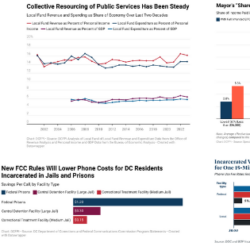Department of Corrections Must Improve Nutrition for Incarcerated Residents
This testimony focuses on the continued need to improve nutritional options for residents in DOC facilities. Specifically, to dedicate funding for the full implementation of Section 32 of Secure DC. In addition, the Council should also work with the DOC to […]










